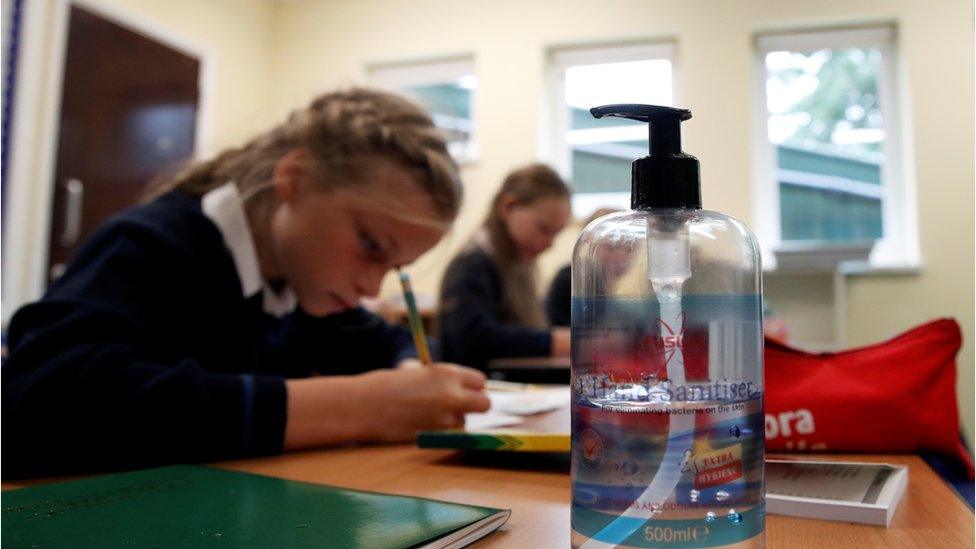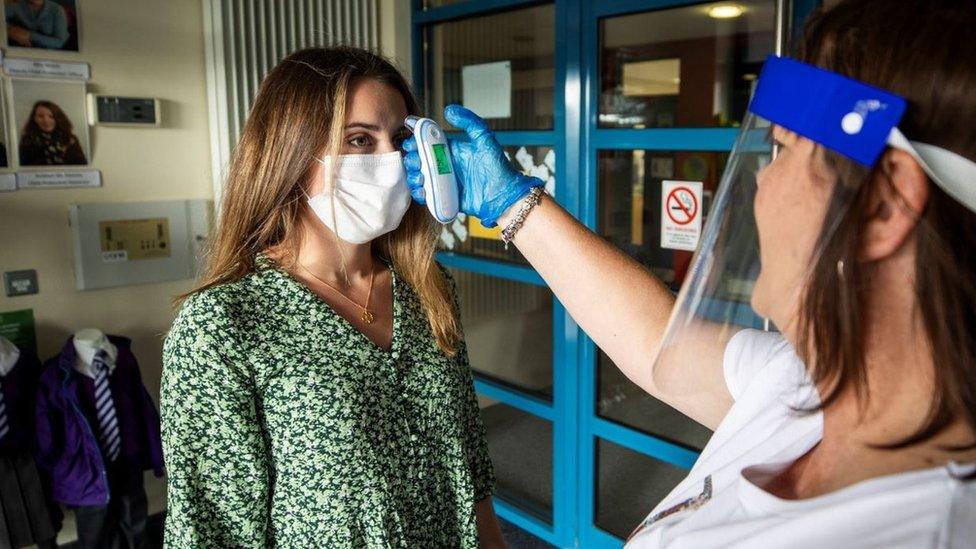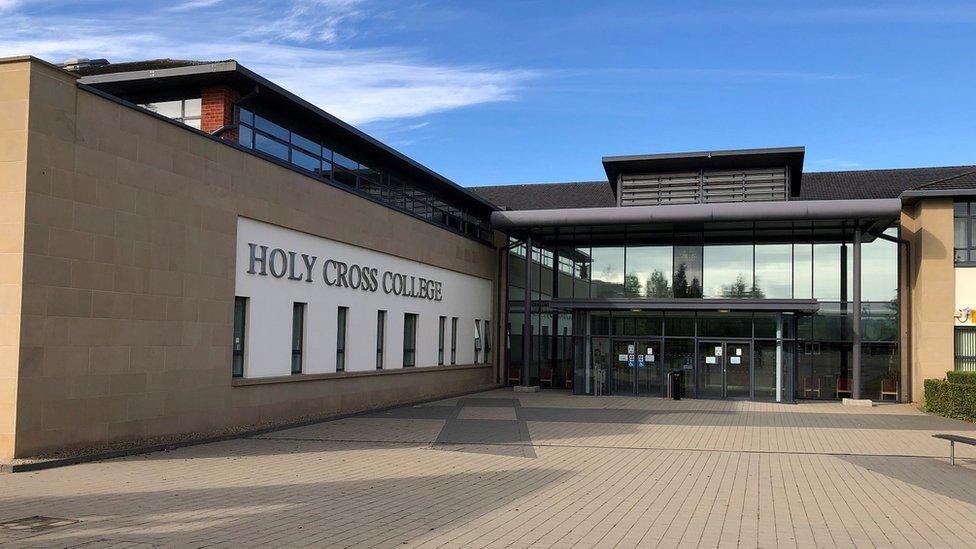Covid-19: Schools to get new guidance on Covid-19 self-isolation
- Published

New guidance will be issued to schools by the Department of Education on when pupils have to self-isolate if one of their classmates has Covid-19.
The change comes only a day after the department issued updated guidance to schools.
On Thursday, the department said class bubbles should be sent home if one pupil in the class had symptoms of the virus, such as a persistent cough.
However, the department said on Friday that it will issue new guidance.
It advised that "only when a positive case has been identified in a child or young person do schools need to consider self-isolating close contacts of that individual".
Among the new measures issued in the updated guidance on Thursday was a recommendation that face visors should not be routinely used in school instead of face coverings or masks.

In some schools, face visors have been used as an alternative to face masks
But the updated guidance also said that if a pupil showed symptoms of Covid-19 in school, other children in their class should be sent home while the symptomatic pupil waited for a test.
"All members of the bubble should follow the same advice as the symptomatic child's household and begin to self-isolate for 14 days pending the result of the test," the guidance issued on Thursday said.
"Schools therefore need to make every effort to maximise segmentation within classrooms."
It was a change from previous DE guidance issued to schools before term started, which said that a class would be advised to self-isolate only in the case of a pupil or staff member testing positive for Covid-19.
Some principals, who got in touch with BBC News NI, warned that the change would lead to large numbers of children being sent home from school.
In response, a spokesperson for the Department of Education (DE) said the guidance would subsequently change again.
"An issue was brought to our attention in relation to a section of the revised New School Day guidance," they said.
"We have worked with the Public Health Agency (PHA) to rectify the issue and revised guidance will be issued on Monday."
The spokesperson added that they "recognise the importance of the guidance for education settings and have taken action to resolve this issue as quickly as possible".
"In response to feedback from schools, and following clarification with the Public Health Agency, we can now advise that only when a positive case has been identified in a child or young person do schools need to consider self-isolating close contacts of that individual."
'Huge implications'
Dr Graham Gault, from the National Association of Head Teachers (NAHT), said that the situation had created confusion for school principals.
"Last night, one school in looking at this guidance was having to make a decision about symptomatic children and had they followed the paragraph in question to the letter they would have been looking at closing seven of their classrooms today," he said.
"The implications whenever there's any confusion or ambiguity for school leaders on the ground is huge.
"The PHA and department need to understand that with the stroke of a pen, a change in language has huge implications on the ground."
However, Dr Gault acknowledged "the huge strains that folk in the department are under and I'm very appreciative today that they were very responsive to the concerns that we raised and have sent out clarification to schools".
- Published24 September 2020
